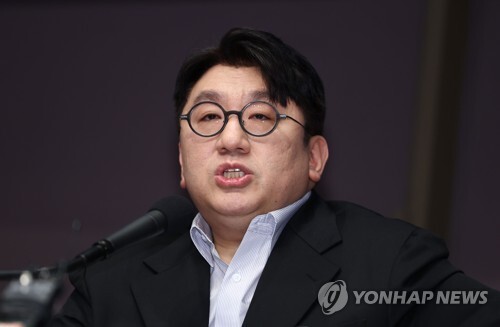 |
| ▲ This Yonhap file photo shows Hybe founder Bang Shi-hyuk. (PHOTO NOT FOR SALE) (Yonhap) |
SEOUL, Nov. 29 (Yonhap) -- Hybe Corporation's founder and chairman, Bang Si-Hyuk, has come under scrutiny following revelations that he signed a private equity fund (PEF) agreement prior to the company's 2020 IPO, allowing him to profit from the sale of PEF shares. The disclosure has raised questions about transparency, as the agreement was not made public before the IPO.
According to the financial investment industry, Bang reportedly entered into shareholder agreements with PEFs such as Stick Investment, EastStone Equity Partners, and NewMain Equity around 2018. These PEFs held 12.2%, 11.4%, and other significant stakes in Hybe, respectively.
Under the agreement, Bang committed to repurchase the PEFs’ shares if the IPO failed within a specified timeframe (a "put option"). Conversely, in the event of a successful IPO, Bang was entitled to approximately 30% of the PEFs' capital gains.
Hybe went public on the KOSPI in October 2020, and the PEFs gradually sold their shares, earning substantial profits. Bang reportedly received approximately 400 billion won (about US$ 304 million) from these gains. Most of this sum was reinvested into Hybe during a subsequent capital increase, bolstering his stake in the company.
The agreement was not disclosed in Hybe's securities filing with the Financial Supervisory Service nor made public at the time, sparking criticism. As Hybe's largest shareholder, Bang was restricted by lock-up regulations from trading his shares during the IPO. This led to allegations that he leveraged the PEF agreement to capitalize on the IPO boom indirectly.
Hybe's IPO drew significant attention as one of the year's most anticipated listings but saw volatile price movements immediately after. The stock opened at 270,000 won—double its initial offering price of 135,000 won—only to dip to 142,000 won within two weeks before rebounding.
In a disclosure on Wednesday, Hybe defended the agreement, stating, "The underwriting firms reviewed the shareholder agreements at the time of the IPO, and no legal violations were identified."
Industry experts note that such agreements are not uncommon for companies preparing for an IPO. PEFs often require put options to secure their investments, while major shareholders may negotiate to receive a portion of the profits upon a successful IPO. However, the necessity of pre-IPO disclosure remains a gray area under current regulations.
Hybe and the PEFs reportedly concluded that the agreement did not conflict with other investors' interests or qualify as a critical management issue requiring disclosure.
A financial regulator stated, "We are examining whether this raises concerns under the Capital Markets Act, but no decision has been made regarding a formal investigation."
Observers note that while Bang reinvested most of his gains into the company, the undisclosed nature of the deal could tarnish his reputation. A music industry source commented, "Although it’s hard to classify this as personal profiteering, the public may perceive the undisclosed windfall as problematic."
(C) Yonhap News Agency. All Rights Reserved




















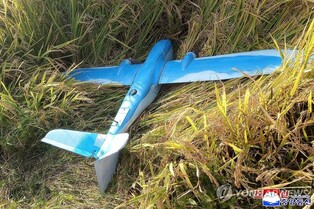
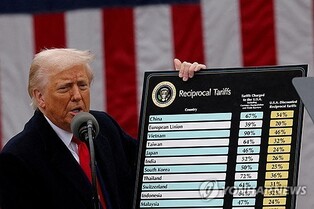
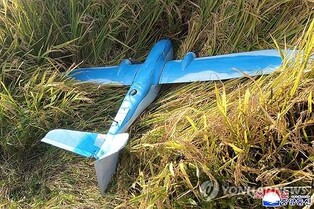


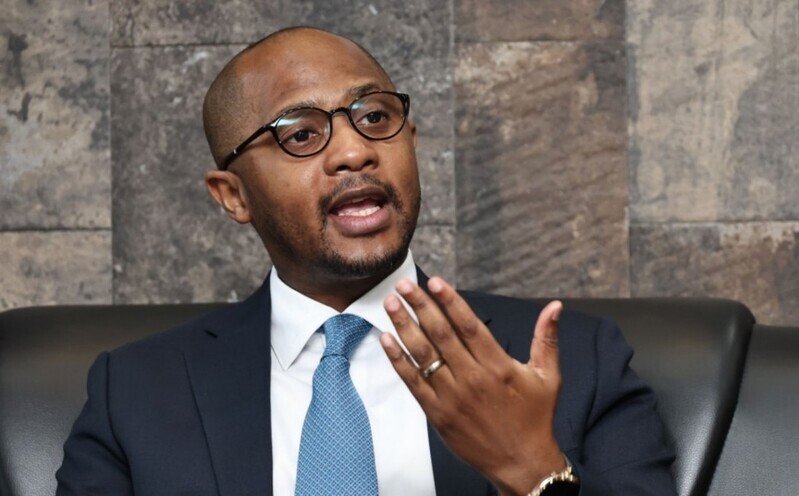


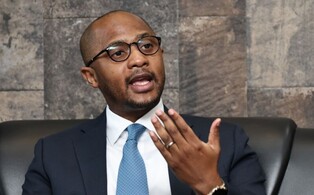
![[박스오피스]](/news/data/20260112/yna1065624915979156_480_h2.jpg)




